If you’ve been scanning your bookshelves wondering what your next read should be, we can’t recommend a National Book Award winner highly enough. The National Book Awards were initially established in 1936, abandoned during the World War II years, and reinstated in 1950. Ever since, the National Book Foundation has held an annual ceremony to hand out the prestigious awards in several categories, including the National Book Award for Nonfiction.
If you have a National Book Award winner in your hands, you can be sure you have an excellent read ahead of you. Our recommendations span decades of winners and engrossing topics ranging from Native American history to financial dynasties.
2023 winner
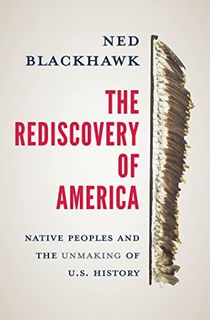
The Rediscovery of America: Native Peoples and the Unmaking of U.S. History
Native Americans have long been ignored in the story of the United States, but that’s finally beginning to change. Yale professor Ned Blackhawk explores 500 years of Indigenous history, arguing that it's interwoven in our national history and crucial to understanding US culture, politics, and more. This account will change your perspective on unexpected events, like the role played by Native Americans in the American Revolution and the Civil War. A “gripping and nuanced” account that recenters the Indigenous experience, “The Rediscovery of America is an essential remedy to the historical record” (Esquire).
2024 winner
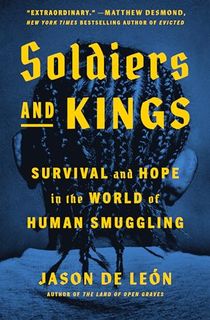
Soldiers and Kings: Survival and Hope in the World of Human Smuggling
Smuggling people across borders is a billion dollar global industry fueled by factors like political instability, poverty, and the demand for cheap labor. The smugglers—also known as coyotes, or guides, by the people who hire them—have been largely faceless, until now. Jason De León is a MacArthur "Genius Grant" winner, anthropologist, and professor who wrote this book by conducting firsthand research over seven years, entrenching himself within a network of smugglers moving migrants across Mexico. This rare look inside a little-known world is “illuminating and often heartrending in its telling” (Booklist).
1977 winner
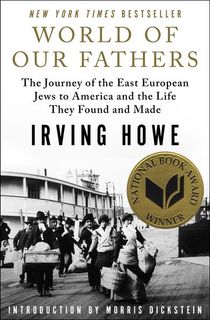
World of Our Fathers
Over two million Yiddish-speaking Jewish immigrants from the Old World were processed through Ellis Island in the late 19th and early 20th centuries, many of them putting roots down in New York City. This New York Times bestseller examines the history of these immigrants in Manhattan, addressing hardships like tenement life and the Triangle Shirtwaist Factory Fire that killed immigrant garment workers to triumphs in escaping oppression, finding new opportunities, and building community. The New York Review of Books called this “a masterly social and cultural history, a vivid, elegiac, and scrupulously documented portrait of a complicated culture.”
1981 winner
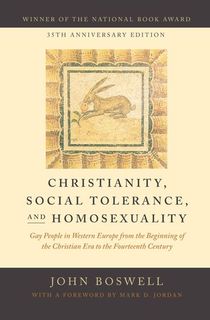
Christianity, Social Tolerance, and Homosexuality
This book challenged preconceived notions about tolerance and intolerance when it was first published in 1981, and it remains just as relevant today. John Boswell takes a scholarly approach to LGBT history in the Christian West, from the first century to the 14th century. His deeply researched account has been cited as a landmark book in the formation of gay and gender studies, and Gay & Lesbian Review wrote, “One day, when all churches accept the presence and achievements of gay people with approbation instead of denial or disapproval, Boswell will in no small way be responsible.”
1971 winner
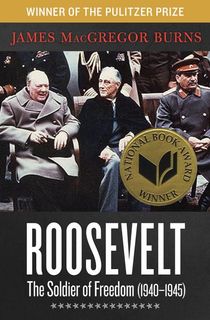
Roosevelt: The Soldier of Freedom (1940–1945)
The second entry in James MacGregor Burns’s two-volume biography was praised by William Shirer as “the definitive book on Roosevelt in the war years.” Picking up in 1940, when FDR was elected to an unprecedented third term and war was looming, this account traces his actions through Pearl Harbor, his wartime leadership, and his vision for the post-war years that he wouldn’t live to see.
1966 winner
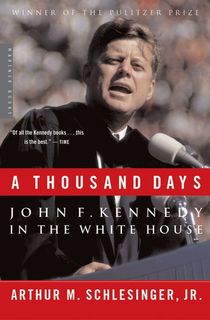
A Thousand Days
Taking its namesake from the length of time John F. Kennedy spent in office before his assassination, this biography, which also won a Pulitzer Prize, was written by the special assistant and “court historian” to JFK, Arthur M. Schlesinger Jr. Hailed by The New York Times as “at once a masterly literary achievement and a work of major historical significance,” Schlesinger employs insider knowledge of Kennedy’s words and actions as well as a deep understanding of contemporary events to shed light on his administration.
1982 winner
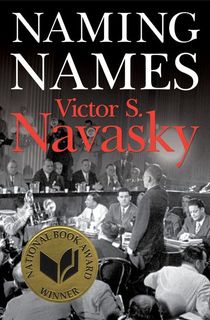
Naming Names
This award winner delves into the Red Scare that swept the United States during the Cold War, specifically the Hollywood Blacklist that banned suspected communists from working in the entertainment industry. Victor S. Navasky draws on interviews with over 150 people who were called to testify before the House Un-American Activities Committee as the basis for this “miracle of vividly responsible scholarship” on which Kurt Vonnegut reflected, “At last I have a solid understanding of why so many important people behaved as they did.”
1961 winner
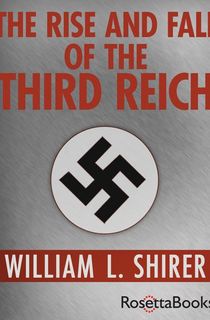
The Rise and Fall of the Third Reich
This is the most widely read and cited book by William L. Shirer, the American historian and war correspondent who was uniquely situated to report on the Third Reich, having worked in Berlin during the pre-war period until 1940 and returning to Europe for the Nuremberg trials in 1945. Shirer drew on his firsthand knowledge and experiences as well as bountiful primary source material in the form of memos, letters, and diaries written by Nazi leaders to craft this definitive account and “one of the most important works of history of our time” (The New York Times).
1990 winner
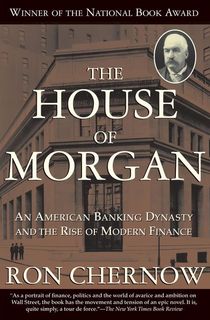
The House of Morgan
Ron Chernow turns his attention to the Morgan banking dynasty in this sweeping biography of four generations that begins in Victorian London and ends in 1980s America. The Modern Library selected The House of Morgan as one of the 100 Best Nonfiction Books of the Twentieth Century, no doubt for its masterful portrayal of the evolution of modern finance and the shadowy money and power driving major world events of the last century and a half.
1981 winner
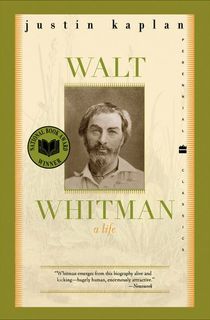
Walt Whitman
This Pulitzer Prize and National Book Award winner brings the quintessential American poet to life in all his genius and contradictions. Justin Kaplan reportedly “gives us flesh and blood Whitman in this fine and sensitive biography” (The Boston Globe). For an expansive treatment of one of the most influential American poets, you can’t do better than Kaplan’s biography.
This post is sponsored by Yale University Press. Thank you for supporting our partners, who make it possible for The Archive to continue publishing the history stories you love.


